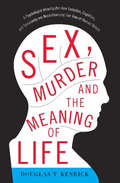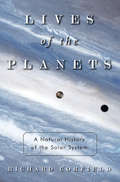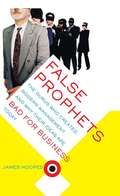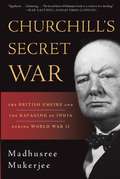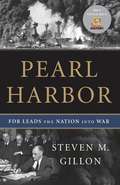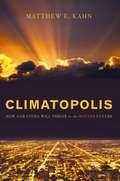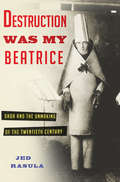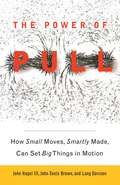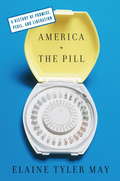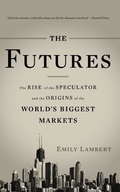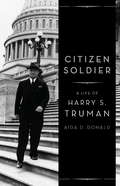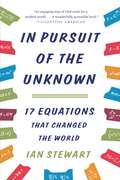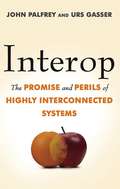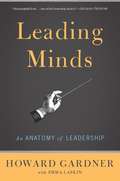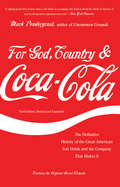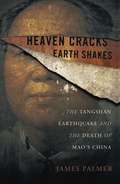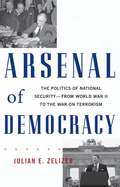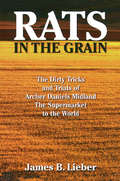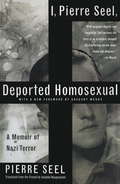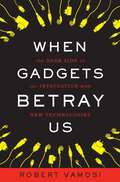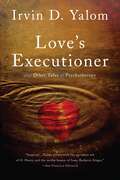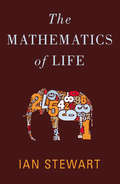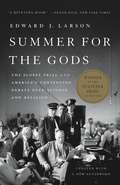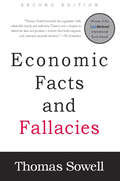- Table View
- List View
Sex, Murder, and the Meaning of Life: A Psychologist Investigates How Evolution, Cognition, and Complexity are Revolutionizing our View of Human Nature
by Douglas T. Kenrick"Kenrick writes like a dream. "--Robert Sapolsky, Professor of Biology and Neurology, Stanford University; author of A Primate's Memoir and Why Zebras Don't Get Ulcers What do sex and murder have to do with the meaning of life? Everything. In Sex, Murder, and the Meaning of Life, social psychologist Douglas Kenrick exposes the selfish animalistic underside of human nature, and shows how it is intimately connected to our greatest and most selfless achievements. Masterfully integrating cognitive science, evolutionary psychology, and complexity theory, this intriguing book paints a comprehensive picture of the principles that govern our lives. As Kenrick divulges, beneath our civilized veneer, human beings are a lot like howling hyenas and barking baboons, with heads full of homicidal tendencies and sexual fantasies. But, in his view, many ingrained, apparently irrational behaviors--such as inclinations to one-night stands, racial prejudices, and conspicuous consumption--ultimately manifest what he calls "Deep Rationality. " Although our heads are full of simple selfish biases that evolved to help our ancestors survive, modern human beings are anything but simple and selfish cavemen. Kenrick argues that simple and selfish mental mechanisms we inherited from our ancestors ultimately give rise to the multifaceted social lives that we humans lead today, and to the most positive features of humanity, including generosity, artistic creativity, love, and familial bonds. And out of those simple mechanisms emerge all the complexities of society, including international conflicts and global economic markets. By exploring the nuance of social psychology and the surprising results of his own research, Kenrick offers a detailed picture of what makes us caring, creative, and complex--that is, fully human. Illuminated with stories from Kenrick's own colorful experiences -- from his criminally inclined shantytown Irish relatives, his own multiple high school expulsions, broken marriages, and homicidal fantasies, to his eventual success as an evolutionary psychologist and loving father of two boys separated by 26 years -- this book is an exploration of our mental biases and failures, and our mind's great successes. Idiosyncratic, controversial, and fascinating, Sex, Murder, and the Meaning of Life uncovers the pitfalls and promise of our biological inheritance.
Lives of the Planets: A Natural History of the Solar System
by Richard CorfieldLives of the Planetsdescribes a scientific field in the midst of a revolution. Planetary science has mainly been a descriptive science, but it is becoming increasingly experimental. The space probes that went up between the 1960s and 1990s were primarily generalists-they collected massive amounts of information so that scientists could learn what questions to pursue. But recent missions have become more focused: Scientists know better what information they want and how to collect it. Even now probes are on their way to Mercury, Venus, Mars, and Pluto, with Europa-one of Jupiter’s moons-on the agenda. In a sweeping look into the manifold objects inhabiting the depths of space,Lives of the Planetsdelves into the mythology and the knowledge humanity has built over the ages. Placing our current understanding in historical context, Richard Corfield explores the seismic shifts in planetary astronomy and probes why we must change our perspective of our place in the universe. In our era of extraordinary discovery, this is the first comprehensive survey of this new understanding and the history of how we got here.
Let's Get This Straight: The Ultimate Handbook for Youth with LGBTQ Parents
by Colage Tina Fakhrid-DeenLet's Get This Straight reaches out to young people with one or more gay, lesbian, bi, or trans parents to provide them with the tools to combat homophobia, take pride in their alternative family structures, and speak out against injustice. This short but thorough book profiles forty-five diverse youth and young adults, all of whom voice their opinions and provide advice for other youth living in LGBTQ households. Let's Get This Straight also includes probing questions, fun activities, engaging quizzes, and reflective journal sections for youth to share their feelings and experiences about having a gay parent. By reading this book, readers will learn how to: identify and overcome barriers to having a gay parent; address discrimination and heterosexism; build a strong self-esteem and sense of belonging; communicate effectively with their parents and individuals outside of the LGBTQ community; access resources and support for their families; respond effectively when challenged about being in a sexual minority family; and reduce the isolation, fear, shame, and confusion that can be associated with having gay parents. As the media brings ever-increasing exposure to gay-headed households, this book is more important than ever. Let's Get This Straight is the perfect blend of wit, sharing of experiences, and "expert" advice that children with LGBTQ parents need to become more self-aware and affirming, and to maintain healthy relationships with their parents.
False Prophets: The Gurus Who Created Modern Management and Why Their Ideas are Bad for Business Today
by James HoopesAccording to Jim Hoopes, the fundamental principles on which business is based-authority, power, control-are increasingly at odds with principles of life in a democratic society-freedom, equality, individualism. False Prophets critically examines the pioneering theories of the early management thinkers, such as Taylor, Follett, Mayo, and Deming, which intended to democratize corporate life yet have proved antithetical to the successful practice of business. Hoopes challenges popular management movements that followed in the wake of these thinkers and accuses today's business theorists of perpetuating bad management in the name of democratic values. He urges executives and managers to recognize the realities of corporate life and learn to apply the principles of power. He also unveils a new management agenda that will be of paramount significance to modern organizations. A rich and lively read, False Prophets provides a refreshingly new and original overview of the history of management in the larger context of the American culture, brilliantly illustrating its evolution-from the ivory tower to the shop floor.
Churchill's Secret War: The British Empire and the Ravaging of India during World War II
by Madhusree MukerjeeA dogged enemy of Hitler, resolute ally of the Americans, and inspiring leader through World War II, Winston Churchill is venerated as one of the truly great statesmen of the last century. But while he has been widely extolled for his achievements, parts of Churchill's record have gone woefully unexamined. As journalist Madhusree Mukerjee reveals, at the same time that Churchill brilliantly opposed the barbarism of the Nazis, he governed India with a fierce resolve to crush its freedom movement and a profound contempt for native lives. A series of Churchill's decisions between 1940 and 1944 directly and inevitably led to the deaths of some three million Indians. The streets of eastern Indian cities were lined with corpses, yet instead of sending emergency food shipments Churchill used the wheat and ships at his disposal to build stockpiles for feeding postwar Britain and Europe.Combining meticulous research with a vivid narrative, and riveting accounts of personality and policy clashes within and without the British War Cabinet, Churchill's Secret War places this oft-overlooked tragedy into the larger context of World War II, India's fight for freedom, and Churchill's enduring legacy. Winston Churchill may have found victory in Europe, but, as this groundbreaking historical investigation reveals, his mismanagement--facilitated by dubious advice from scientist and eugenicist Lord Cherwell--devastated India and set the stage for the massive bloodletting that accompanied independence.
Pearl Harbor: FDR Leads the Nation Into War
by Steven M. GillonWritten in simple language for general readers in high school and up, this book chronicles President Franklin D. Roosevelt's decisions and actions in the 24 hours after the Japanese attack on the US Navy's base at Pearl Harbor, culminating in his declaration of war to Congress on the day after the attack. Even as he declared war, FDR kept the worst details of the attack from the American public and Congress in order to boost morale and head off criticism. Focusing on the first 24 hours allows the author to provide a new perspective on the inner workings of the presidency in the face of crisis. The book's type size is larger than many books, although not officially 'large print. ' The publication of the book coincides with a December 2011 TV special on The History Channel. Gillon (history, U. of Oklahoma) is resident historian for The History Channel. He has written eight other books on history for general readers. Annotation ©2011 Book News, Inc. , Portland, OR (booknews. com)
Climatopolis: How Our Cities Will Thrive in the Hotter Future
by Matthew E. KahnWe have released the genie from the bottle: climate change is coming, and there’s no stopping it. The question, according to Matthew Kahn, is not how we’re going to avoid a hotter future but how we’re going to adapt to it. In Climatopolis, Kahn, one of the world’s foremost experts on the economics of the environment, argues that cities and regions will adapt to rising temperatures over time, slowly transforming our everyday lives as we change our behaviors and our surroundings. Taking the reader on a tour of the world’s cities-- from New York to Beijing to Mumbai--Kahn’s clear-eyed, engaging, and optimistic message presents a positive yet realistic picture of what our urban future will look like.
Destruction Was My Beatrice: Dada and the Unmaking of the Twentieth Century
by Jed RasulaIn 1916, as World War I raged around them, a group of bohemians gathered at a small nightclub in Zurich, Switzerland for a series of bizarre performances. Three readers simultaneously recited a poem in three languages; a monocle-wearing teenager performed a spell from New Zealand; another young man flung bits of papier-mâché into the air and glued them into place where they landed. One of these artists called the sessions "both buffoonery and a requiem mass. ” Soon they would be known by a more evocative name: Dada. In Destruction Was My Beatrice, modernist scholar Jed Rasula presents the first narrative history of the emergence, decline, and legacy of Dada, showing how this strange artistic phenomenon spread across Europe and then the world in the wake of the Great War, fundamentally reshaping modern culture in ways we’re still struggling to understand today.
The Power of Pull: How Small Moves, Smartly Made, Can Set Big Things in Motion
by John Seely Brown Iii HagelIn a radical break with the past, information now flows like water, and we must learn how to tap into its stream. Individuals and companies can no longer rely on the stocks of knowledge that they've carefully built up and stored away. Information now flows like water, and we must learn how to tap into the stream. But many of us remain stuck in old practices--practices that could undermine us as we search for success and meaning. In this revolutionary book, three doyens of the Internet age, whose path-breaking work has made headlines around the world, reveal the adjustments we must make if we take these changes seriously. In a world of increasing risk and opportunity, we must understand the importance of pull. Understood and used properly, the power of pull can draw out the best in people and institutions by connecting them in ways that increase understanding and effectiveness. Pull can turn uncertainty into opportunity, and enable small moves to achieve outsized impact. Drawing on pioneering research, The Power of Pull shows how to apply its principles to unlock the hidden potential of individuals and organizations, and how to use it as a force for social change and the development of creative talent. The authors explore how to use the power of pull to: Access new sources of information Attract likeminded individuals from around the world Shape serendipity to increase the likelihood of positive chance encounters Form creation spaces to drive you and your colleagues to new heights Transform your organization to adapt to the flow of knowledge The Power of Pull is essential reading for entrepreneurs, managers, and anybody interested in understanding and harnessing the shifting forces of our networked world.
America and the Pill: A History of Promise, Peril, and Liberation
by Elaine Tyler MayIn 1960, the FDA approved the contraceptive commonly known as "the pill. ” Advocates, developers, and manufacturers believed that the convenient new drug would put an end to unwanted pregnancy, ensure happy marriages, and even eradicate poverty. But as renowned historian Elaine Tyler May reveals in America and the Pill, it was women who embraced it and created change. They used the pill to challenge the authority of doctors, pharmaceutical companies, and lawmakers. They demonstrated that the pill was about much more than family planning-it offered women control over their bodies and their lives. From little-known accounts of the early years to personal testimonies from young women today, May illuminates what the pill did and did not achieve during its half century on the market.
The Futures: The Rise of the Speculator and the Origins of the World's Biggest Markets
by Emily LambertIn The Futures, Emily Lambert, senior writer at Forbes magazine, tells us the rich and dramatic history of the Chicago Mercantile Exchange and Chicago Board of Trade, which together comprised the original, most bustling futures market in the world. She details the emergence of the futures business as a kind of meeting place for gamblers and farmers and its subsequent transformation into a sophisticated electronic market where contracts are traded at lightning-fast speeds. Lambert also details the disastrous effects of Wall Street's adoption of the futures contract without the rules and close-knit social bonds that had made trading it in Chicago work so well. Ultimately Lambert argues that the futures markets are the real "free" markets and that speculators, far from being mere parasites, can serve a vital economic and social function given the right architecture. The traditional futures market, she explains, because of its written and cultural limits, can serve as a useful example for how markets ought to work and become a tonic for our current financial ills.
Citizen Soldier: A Life of Harry S. Truman
by Aida DonaldWhen Harry S. Truman left the White House in 1953, his reputation was in ruins. Tarred by corruption scandals and his controversial decision to drop nuclear bombs on Japan, he ended his second term with an abysmal approval rating, his presidency widely considered a failure. But this dim view of Truman ignores his crucial role in the 20th century and his enduring legacy, as celebrated historian Aida D. Donald explains in this incisive biography of the 33rd president. InCitizen Soldier, Donald shows that, for all his failings, Truman deserves recognition as the principal architect of the American postwar world. The son of poor Missouri farmers, Truman overcame professional disaster and personal disillusionment to become something of a hero in the Missouri National Guard during World War I. His early years in politics were tainted by the corruption of his fellow Missouri Democrats, but Truman’s hard work and scrupulous honesty eventually landed him a U. S. Senate seat and then the Vice-Presidency. When Franklin Roosevelt passed away in April 1945, Truman unexpectedly found himself at the helm of the American war effort-and in command of the atomic bomb, the most lethal weapon humanity had ever seen. Truman’s decisive leadership during the remainder of World War II and the period that followed reshaped American politics, economics, and foreign relations; in the process, says Donald, Truman delineated the complex international order that would dominate global politics for the next four decades. Yet his accomplishments, such as the liberal reforms of the Fair Deal, have long been overshadowed by a second term marred by scandal. Until we reevaluate Truman and his presidency, Donald argues, we cannot fully understand the world he helped create. A psychologically penetrating portrait,Citizen Soldiercandidly weighs Truman’s moments of astonishing greatness against his profound shortcomings, offering a balanced treatment of one of America’s most consequential-and misunderstood-presidents.
In Pursuit of the Unknown: 17 Equations That Changed the World
by Ian StewartFor general readers of science and technology titles, this engaging work on the meaning and impact of mathematical equations examines seventeen of the most important equations in history and explores not only the science behind the specific formulas, but also the wide influence of these germinal ideas on modern technologies and scientific study. Covering popular equations such as the Pythagorean theorem and Relativity, as well as more obscure and advanced topics, the work provides an entertaining journey through the development of theoretical mathematics, as well as an informative look at applied science. Numerous tables, graphs, and illustrations are provided throughout. Stewart is professor emeritus of mathematics at Warwick University. Annotation ©2012 Book News, Inc. , Portland, OR (booknews. com)
Interop: The Promise and Perils of Highly Interconnected Systems
by John Palfrey Urs GasserIn Interop, technology experts John Palfrey and Urs Gasser explore the immense importance of interoperability-the standardization and integration of technology-and show how this simple principle will hold the key to our success in the coming decades and beyond. The practice of standardization has been facilitating innovation and economic growth for centuries. The standardization of the railroad gauge revolutionized the flow of commodities, the standardization of money revolutionized debt markets and simplified trade, and the standardization of credit networks has allowed for the purchase of goods using money deposited in a bank half a world away. These advancements did not eradicate the different systems they affected; instead, each system has been transformed so that it can interoperate with systems all over the world, while still preserving local diversity. As Palfrey and Gasser show, interoperability is a critical aspect of any successful system-and now it is more important than ever. Today we are confronted with challenges that affect us on a global scale: the financial crisis, the quest for sustainable energy, and the need to reform health care systems and improve global disaster response systems. The successful flow of information across systems is crucial if we are to solve these problems, but we must also learn to manage the vast degree of interconnection inherent in each system involved. Interoperability offers a number of solutions to these global challenges, but Palfrey and Gasser also consider its potential negative effects, especially with respect to privacy, security, and co-dependence of states; indeed, interoperability has already sparked debates about document data formats, digital music, and how to create successful yet safe cloud computing. Interop demonstrates that, in order to get the most out of interoperability while minimizing its risks, we will need to fundamentally revisit our understanding of how it works, and how it can allow for improvements in each of its constituent parts. In Interop, Palfrey and Gasser argue that there needs to be a nuanced, stable theory of interoperability-one that still generates efficiencies, but which also ensures a sustainable mode of interconnection. Pointing the way forward for the new information economy, Interop provides valuable insights into how technological integration and innovation can flourish in the twenty-first century.
Leading Minds: An Anatomy Of Leadership
by Howard Gardner Emma LaskinPsychologist Howard Gardner, creator of the multiple intelligences framework and author of many books on the mind, explores the major facets of leadership from the perspective of psychology. In this work for general readers (first published in 1995), he presents a framework for understanding leadership and illustrates the framework with profiles of famous leaders such as anthropologist Margaret Mead, civil rights leader Martin Luther King, Jr. , Pope John XXIII, and Mahatma Gandhi. The book is illustrated with b&w historical photos of leaders. This edition contains a new preface by Gardner reviewing his reasons for writing the book, offering reflections on the past 15 years in leadership studies, and commenting on how leadership has changed in the era of "truthiness, twaddle, and Twitter. " Annotation ©2012 Book News, Inc. , Portland, OR (booknews. com)
For God Country and Coca-Cola
by Mark PendergrastFor God, Country and Coca-Cola is the unauthorized history of the great American soft drink and the company that makes it. From its origins as a patent medicine in Reconstruction Atlanta through its rise as the dominant consumer beverage of the American century, the story of Coke is as unique, tasty, and effervescent as the drink itself. With vivid portraits of the entrepreneurs who founded the company-and of the colorful cast of hustlers, swindlers, ad men, and con men who have made Coca-Cola the most recognized trademark in the world-this is business history at its best: in fact, "The Real Thing. ”
Heaven Cracks, Earth Shakes: The Tangshan Earthquake and the Death of Mao's China
by James PalmerWhen an earthquake of historic magnitude leveled the industrial city of Tangshan in the summer of 1976, killing more than a half-million people, China was already gripped by widespread social unrest. As Mao lay on his deathbed, the public mourned the death of popular premier Zhou Enlai. Anger toward the powerful Communist Party officials in the Gang of Four, which had tried to suppress grieving for Zhou, was already potent; when the government failed to respond swiftly to the Tangshan disaster, popular resistance to the Cultural Revolution reached a boiling point. In Heaven Cracks, Earth Shakes, acclaimed historian James Palmer tells the startling story of the most tumultuous year in modern Chinese history, when Mao perished, a city crumbled, and a new China was born.
Arsenal of Democracy: The Politics of National Security -- From World War II to the War on Terrorism
by Julian ZelizerIt has long been a truism that prior to George W. Bush, politics stopped at the water's edge--that is, that partisanship had no place in national security. In Arsenal of Democracy, historian Julian E. Zelizer shows this to be demonstrably false: partisan fighting has always shaped American foreign policy and the issue of national security has always been part of our domestic conflicts. Based on original archival findings, Arsenal of Democracy offers new insights into nearly every major national security issue since the beginning of the cold war: from FDR's masterful management of World War II to the partisanship that scarred John F. Kennedy during the Cuban Missile Crisis, from Ronald Reagan's fight against Communism to George W. Bush's controversial War on Terror. A definitive account of the complex interaction between domestic politics and foreign affairs over the last six decades, Arsenal of Democracy is essential reading for anyone interested in the politics of national security.
Rats in the Grain: The Dirty Tricks and Trials of Archer Daniels Midland, the Supermarket to the World
by James B. LieberBeneath the wholesome image of Archer Daniels Midland lie some of the dirtiest practices in American business: price-fixing, bribery, and cover-ups. Unfolding like a legal thriller, Rats in the Grain portrays the crime and punishment of ADM during the largest white-collar criminal trial of the 1990s. James Lieber profiles the witnesses, the defense lawyers and federal prosecutors, the inner workings of the Justice Department's Antitrust Division, and the unpredictable mole Lieber had access to. "A detailed account of how an influential corporation can go rotten. " - The Cleveland Plain Dealer
I, Pierre Seel, Deported Homosexual: A Memoir of Nazi Terror
by Joachim Neugroschel Pierre SeelOn a fateful day in May 1941, in Nazi-occupied Strasbourg, seventeen-year- old Pierre Seel was summoned by the Gestapo. This was the beginning of his journey through the horrors of a concentration camp.<P> For nearly forty years, Seel kept this secret in order to hide his homosexuality. Eventually he decided to speak out, bearing witness to an aspect of the Holocaust rarely seen. This edition, with a new foreword from gay-literature historian Gregory Woods, is an extraordinary firsthand account of the Nazi roundup and the deportation of homosexuals.
When Gadgets Betray Us: The Dark Side of Our Infatuation With New Technologies
by Robert VamosiWriting in plain language for general readers, Vamosi, a computer security analyst and a contributing editor at PCWorld, explains what we're really signing up for when we log in and reveals the secret lives of our electronic devices, offering a commonsense approach for protecting ourselves. The book is about hardware hacking and new kinds of identity fraud: how our mobile phone conversations can be intercepted, how our credit cards and driver's licenses can be copied at a distance. The author travels from the streets of New York and LA to Johannesburg and Berlin, to talk to people who have experienced firsthand how gadgets can betray us and to examine the effects of technology in the Third World. He recommends the addition of basic authentication and strong encryption to most hardware to reduce the vulnerabilities described in the book, but notes that hardware manufacturers have so far shown little interest in securing their gadgets. Annotation ©2011 Book News, Inc. , Portland, OR (booknews. com)
Love's Executioner: & Other Tales of Psychotherapy
by Irvin D. YalomThe collection of ten absorbing tales by master psychotherapist Irvin D. Yalom uncovers the mysteries, frustrations, pathos, and humor at the heart of the therapeutic encounter. In recounting his patients' dilemmas, Yalom not only gives us a rare and enthralling glimpse into their personal desires and motivations but also tells us his own story as he struggles to reconcile his all-too human responses with his sensibility as a psychiatrist. Not since Freud has an author done so much to clarify what goes on between a psychotherapist and a patient.
The Mathematics of Life: The New Mathematics Of The Living World
by Ian StewartBiologists have long dismissed mathematics as being unable to meaningfully contribute to our understanding of living beings. Within the past ten years, however, mathematicians have proven that they hold the key to unlocking the mysteries of our world--and ourselves. In The Mathematics of Life, Ian Stewart provides a fascinating overview of the vital but little-recognized role mathematics has played in pulling back the curtain on the hidden complexities of the natural world--and how its contribution will be even more vital in the years ahead. In his characteristically clear and entertaining fashion, Stewart explains how mathematicians and biologists have come to work together on some of the most difficult scientific problems that the human race has ever tackled, including the nature and origin of life itself.
Summer for the Gods: The Scopes Trial and America's Continuing Debate Over Science and Religion
by Edward J. LarsonThe Pulitzer Prize-winning history of the Scopes Trial and the battle over evolution and creation in America's schools.In the summer of 1925, the sleepy hamlet of Dayton, Tennessee, became the setting for one of the twentieth century's most contentious courtroom dramas, pitting William Jennings Bryan and the anti-Darwinists against a teacher named John Scopes, represented by Clarence Darrow and the ACLU, in a famous debate over science, religion, and their place in public education. That trial marked the start of a battle that continues to this day in cities and states throughout the country. Edward Larson's classic Summer for the Gods -- winner of the Pulitzer Prize in History -- is the single most authoritative account of this pivotal event. An afterword assesses the state of the battle between creationism and evolution, and points the way to how it might potentially be resolved.
Economic Facts and Fallacies: Second Edition
by Thomas SowellEconomic Facts and Fallaciesexposes some of the most popular fallacies about economic issues-and does so in a lively manner and without requiring any prior knowledge of economics by the reader. These include many beliefs widely disseminated in the media and by politicians, such as mistaken ideas about urban problems, income differences, male-female economic differences, as well as economics fallacies about academia, about race, and about Third World countries. One of the themes ofEconomic Facts and Fallaciesis that fallacies are not simply crazy ideas but in fact have a certain plausibility that gives them their staying power-and makes careful examination of their flaws both necessary and important, as well as sometimes humorous. Written in the easy-to-follow style of the author’sBasic Economics, this latest book is able to go into greater depth, with real world examples, on specific issues.
